The power of a smile
| February 2023Ben Kingston-Hughes is a play specialist who inspires a unique approach to learning that aims to inject joy through play.
Do we know we are cared for?
As an educator and trainer, I have occasionally found myself working with abusive parents. Some parents in this situation can still believe that they care for their children. However, does the child know they are cared for when every one of their five senses is telling them they are worthless? The simple truth is that they don’t.
So, it is not enough for children to be cared for, they must fundamentally know that they are cared for. They can only do this through the evidence of their senses. The challenge for educators is that all children are different. What is perceived as nurturing for one child might be a source of stress to another. I work with many children for whom eye contact, especially during story time, lets them know that they are important to me. For others, eye contact can be seen as threatening and a source of anxiety.
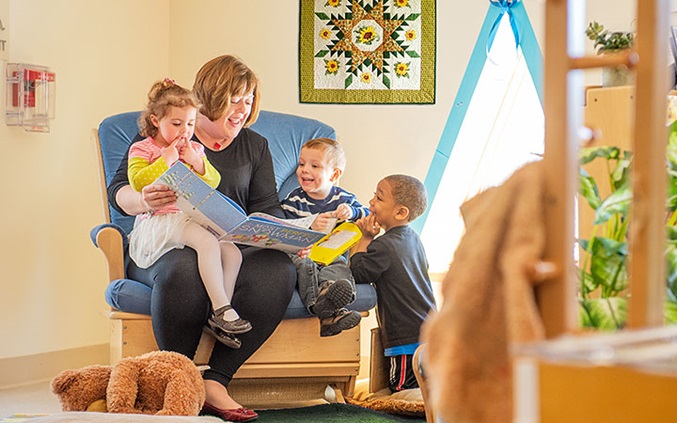
Nurturing and feeling safe
Before any progress can be made, the child MUST feel safe, secure and nurtured. This has to be the platform for every other aspect of learning and development. Feelings of anxiety and shame will greatly reduce the child’s capacity to learn and critically undermine their emotional well-being. Thus from the moment a child enters an early years setting, they must feel loved and valued.
We need to acknowledge that children’s experiences outside our settings may have led them to feel extremely vulnerable, and that we need to be much more proactive in supporting these children. They need to know at the deepest level and from the earliest age that their care providers will keep them safe.
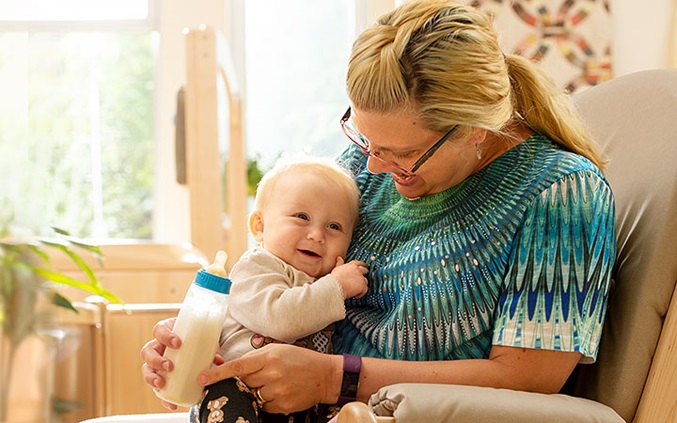
An absence of smiles
A smile is one of the most basic and fundamental nurturing methods. A simple smile can make all the difference and is something that even very young babies respond to. In fact, babies’ eyesight has such a short focal distance when they are born that focusing on the smiling face of a loving carer is a vital early nurturing experience. Now think of a post-pandemic world where a generation of young children have seen fewer smiles because of lockdowns and face masks. On our training activity days with children, when masks were still being worn, we told all our workers to make sure their smiles reached their eyes!
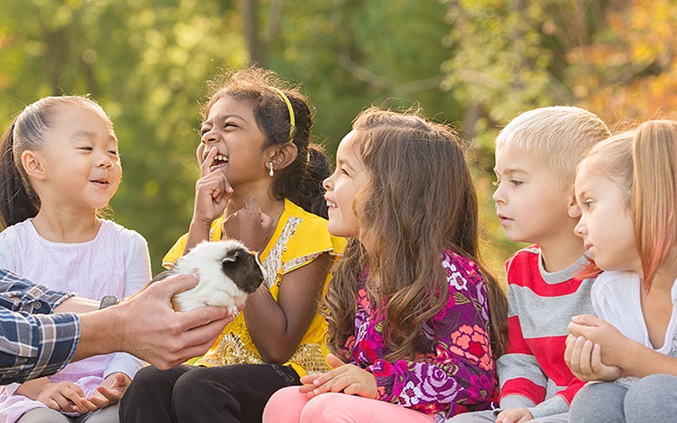
The power of smiles
Nurturing is built into a really primitive part of the brain. The hug, the smile, our soothing voice – all the ways we help children to feel safe secure, and loved in a setting – flood them with hormones that make them feel happy. It’s a two-way process as well – when you make a child feel brilliant about themselves, you get a little hit of those positive biochemicals yourself, which is certainly one fantastic perk to an educator’s job.
The smile is more important than that though. It tells the child two very important things: that they are safe and they are liked. The power of these two simple affirmations cannot be underestimated, and until the child feels fundamentally safe and liked they will struggle to thrive. The problem is that in times of stress and anxiety we are all less inclined to smile, so this vital aspect of nurturing can be neglected. It is one of the simplest ways to express nurturing and perhaps the easiest to forget―yet the smile is a fundamental aspect of well-being.
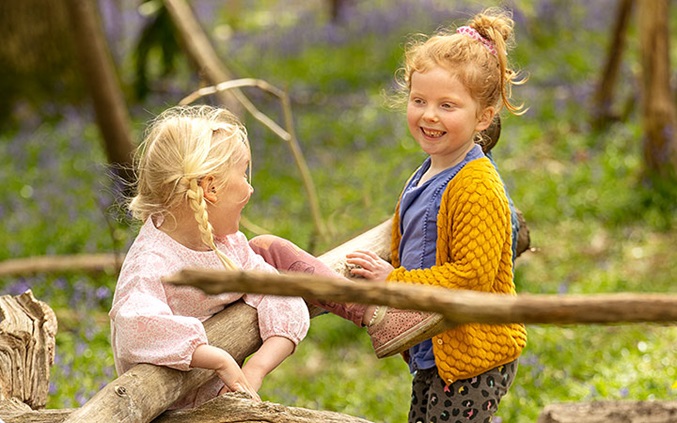
A very special laugh
Just before the first lockdown, I was working with a group of children who had been through extreme abuse. These children had rarely seen smiles or received any other form of nurturing in their lives. In fact, as we walked into the venue the children looked at us with fear as if they automatically expected to be hurt. We decided to do some superhero play which was basically just old curtains and blankets as capes and some cheap character masks. Crucially, we managed to persuade all the foster carers and social workers to dress up as well as the children. The minute everyone was dressed as a superhero, the children began to smile for the first time that day. One little boy then laughed out loud. It was such a loud, beautiful sound that every adult couldn’t help but stop and stare. The child then started choking and coughing. He was absolutely fine, however, and after a drink of water, he carried on playing while we continued to have the most joyful session. It was only as I was clearing away afterward that the boy’s social worker said to me, “I think that’s probably the first time he’s ever laughed.”
The thing is that I had forgotten just how vulnerable the children in this group were. As a 52-year-old man being paid to be a superhero, I was having a brilliant time. I had forgotten that many of those children had experienced more trauma in their short lives than I could imagine. The smiles and laughter they experienced that day may have been commonplace to me, but were a unique moment of profound importance for those children.
Let’s all smile more
So the takeaway is to smile more. Despite the anxieties of adult life, we still need to be showing our children they are safe and they are liked, activating their nurturing system and flooding them with positive biochemicals. We need to acknowledge that many children have not seen enough smiles in their lives, and that we as educators have a dynamic yet beautifully simple means of changing their lives for the better – the power of a smile.
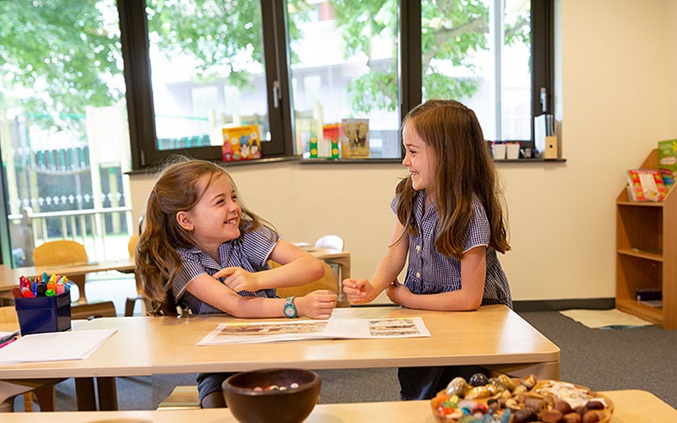
Advanced version of a chapter from Ben’s new book – which will be in print soon. His current book “A Very Unusual Journey into Play" is available here.






